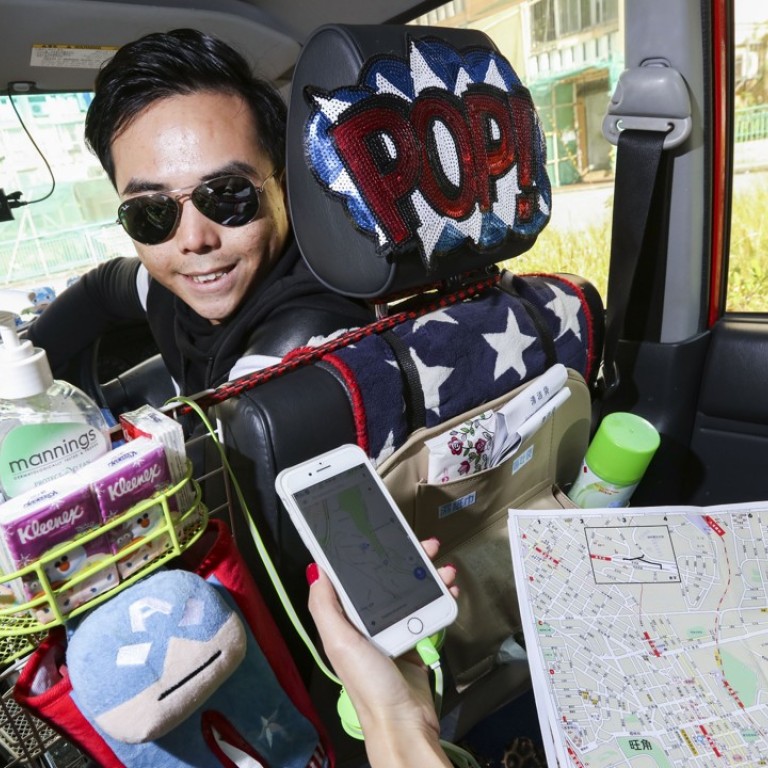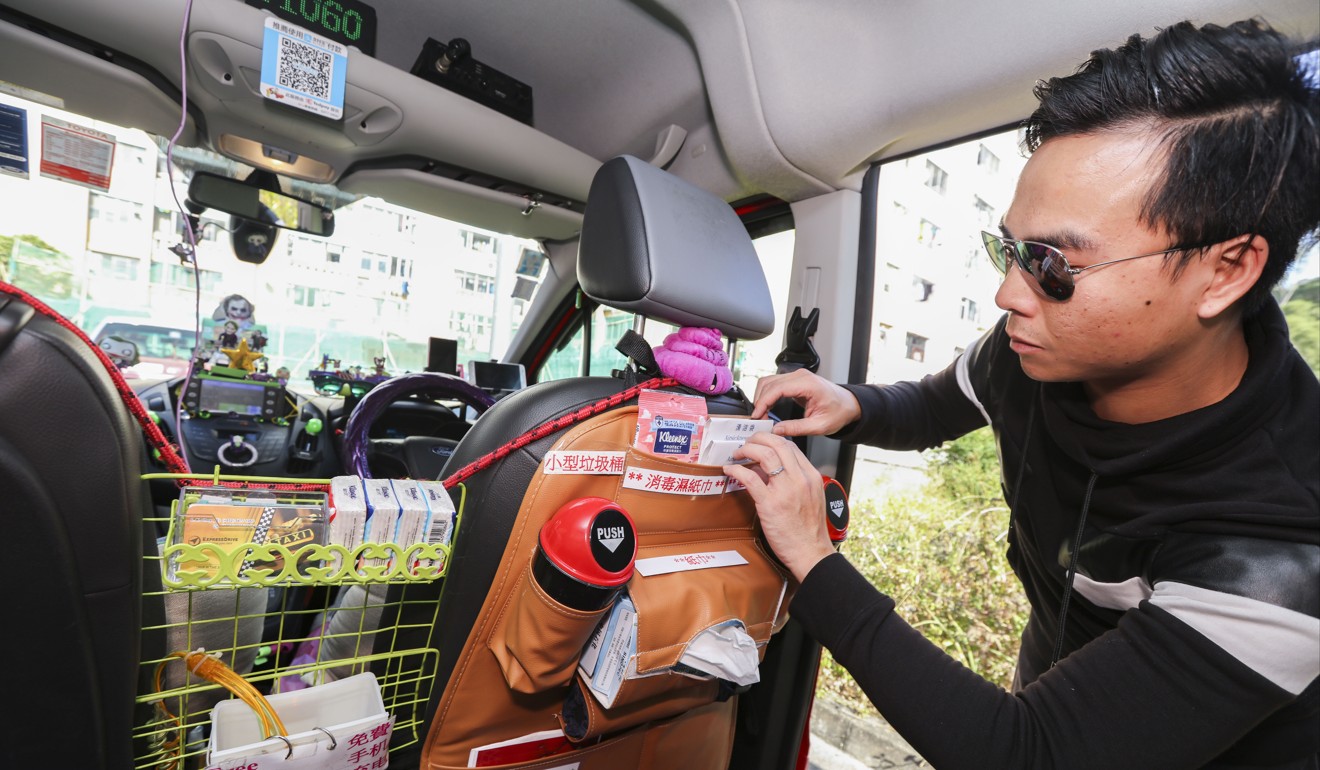
Hong Kong cabbies go extra mile to help shake off bad reputation
A small group is providing upgraded services including tissues, hand sanitisers and phone chargers so passengers can experience rides that are as pleasant as possible – and at no extra charge
A big part of Hongkongers’ ongoing love-hate relationship with taxi drivers stems from cabbies’ perceived bad attitudes and service, prompting many locals to opt for ride-hailing services such as Uber.
Figures from the government’s Transport Complaints Unit show that taxi services remained one of the major areas of complaints in 2016. There were 10,357 cases, accounting for 46 per cent of all complaints about public transport services. The number of complaints per million passenger journeys was the highest among all types of public transport.
Hong Kong taxis may be willing to team up with ride-hailing giant Uber for ‘win-win situation’
And the complaints continued to rise, with 2,410 in the first three months of last year, a 10 per cent increase from the same quarter in 2016.

Headlines on the arrest of dodgy taxi drivers in Hong Kong have been a recurring theme, so to ride out the storm, would-be role models are determined to lose the stereotype that the trade is swarming with bad-tempered drivers who overcharge, take longer routes and cherry-pick their passengers.
To fight back in an increasingly competitive for-hire vehicle market, 20 cabbies have banded together by providing upgraded services including boxes of tissues, hand sanitisers and phone chargers so passengers can experience rides that are as pleasant as possible.
Metal-bar-wielding taxi driver arrested in Hong Kong over foul-mouthed tirade
“These are just simple necessities that may come in handy for our customers. They may be small things but they can somehow make a difference,” says J. Li, one of the drivers hoping to turn the industry’s bad reputation around. The 29-year-old left his job as a sales representative one year ago.
“It turned out I was not the only one with the idea. When I met a few others who shared the same concerns in 2016, very quickly we decided to launch First Class Taxi.”
First Class Taxi is more of a concept than a formal organisation. The members have only got one mission – to put the customer first.
Li’s day starts at 4:30am, half an hour before his actual shift.
“Every morning, it takes about 30 minutes to tidy up the vehicle: cleaning the seats, refilling tissues, and taking out the rubbish because I want to make sure that my passengers will feel as if they’re cruising in a first-class plane cabin.”
On a good day, Li will get 25 trips. A driver can be flagged on the street or booked via its hotline, a service with no surcharge, something passengers would appreciate, Li thinks.
Hong Kong taxi trade hit by driver shortage as young are put off by its bad reputation
Li believes his 20-member group provides choice and convenience for consumers at a time when the industry is suffering from a negative image.
“The main problem is the constant decline in the quality of taxi drivers in recent years which has forced disgruntled customers to choose e-hailing services for a more reliable journey with added luxury and better service.”
Over 2,500 Hong Kong taxi drivers sign up to cashless WeChat Pay and Alipay
The group has also gone up a notch by offering electronic payment.
“Tourists are a main source of our business. Most of the time they don’t have a lot of cash on them, and sometimes it’s us who don’t have the change for high-denomination banknotes, so we want to give them the convenience of e-payment.”
Li says a few drivers in the group have signed up with mainland e-payment Alipay.
“The alternative payment method offers more freedom for customers, breaking the decades-old practice of a cash-only service.”
In a city where there are 18,000 taxis and 40,000 drivers, Li says the biggest challenge is to convince more cabbies to embrace change and adapt accordingly like them.
“Most of them are resistant to new ideas because they think it’s unnecessary to go through all these troubles. That is why one of the toughest challenges for us is finding more cabbies to join our group.”

